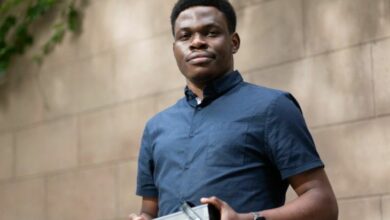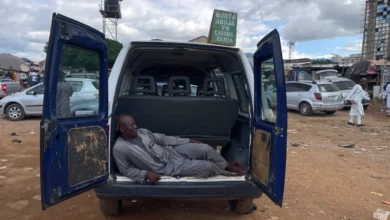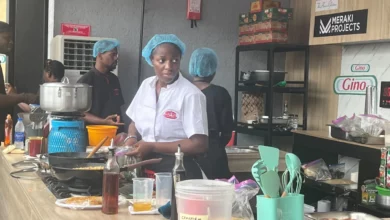Bauchi, Nigeria — A bomb tore through a bar in a military barracks in Nigeria’s restive Muslim north, killing 15 people just hours after a southern Christian president was inaugurated, an official who participated in the rescue efforts said Monday.
Bauchi state police chief Mohammed Indabawa said the blast hit the bar in the town of Bauchi at about 8 p.m. Sunday, just hours after the inauguration of President Goodluck Jonathan in Nigeria’s capital of Abuja.
Indabawa said 10 people were killed, but the official who helped emergency workers take victims to the hospital and to the mortuary said 15 people were killed and 35 injured. He said he didn’t want his name used because the military has said that this is a military affair.
An Associated Press writer who was about 1300 feet (400 meters) from the barracks when the blasts went off said he heard three consecutive loud noises at two- to five-minute intervals.
A spokesman for the National Emergency Management Agency, Yushau Shuaib, said 20 people were wounded and that stringent security measures had been taken to prevent such attacks on inauguration day.
“Telecommunications operators blocked service in Abuja yesterday and government took so many other measures to prevent this, but it is unfortunate that this still happened,” he said. “The Agency moved in quickly, otherwise this would have been even worse.”
The blast illustrates the challenges facing Jonathan. The southerner was sworn in Sunday for a full four-year term and is now faced with the task of uniting a country that saw deadly postelection violence despite what observers called the fairest vote in more than a decade.
No one has claimed responsibility for the blast.
All roads leading to the Shadawanka Barracks in Bauchi were cordoned off by security personnel after the blasts.
The nation of 150 million people with more than 150 ethnic groups is broadly divided between the Christian-dominated south and the Muslim north. Postelection violence spread quickly across northern states after early results showed that Jonathan, a Christian from the south, was winning.
Many northerners believed someone from their region should be the next leader after the Muslim president died in office. Former President Yar’Adua had been expected to rule for another term, but his death left the presidency in the hands of a southerner. An unwritten agreement in the ruling party calls for its presidential candidates to rotate between the country’s Christian south and Muslim north.
Bauchi town has a history of sectarian violence and was a scene of rioting and destruction after the April elections.
Bauchi is also a stronghold of a radical Muslim sect locally known as Boko Haram. Its members are accused of a rash of killings in the area in recent months which have targeted police officers, soldiers and political and spiritual leaders. They previously attacked churches and engineered a massive prison break.
Boko Haram, which means “Western education is sacrilege” in the Hausa language, has asked pushed for the implementation of Sharia law in northern states. Its members re-emerged recently after starting a July 2009 riot that led to a security crackdown that left 700 people dead. They recently rejected a government-sponsored amnesty offer.
Authorities blame the group for an explosion at a hotel in April that killed three people and wounded 14 others in Maiduguri, a city close to Bauchi, only days before the state’s gubernatorial election.
Tensions in Nigeria are fueled by poverty and unemployment in a country where an unreliable power supply has led to the closure of factories and the loss of tens of thousands of jobs in the textile industry alone over the last few years, especially in the Muslim north.




